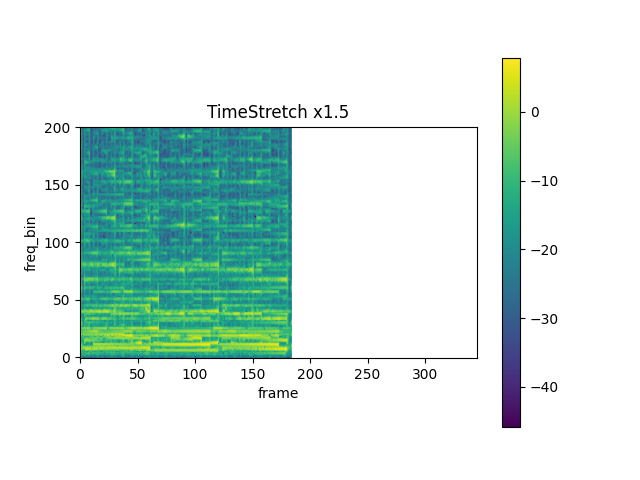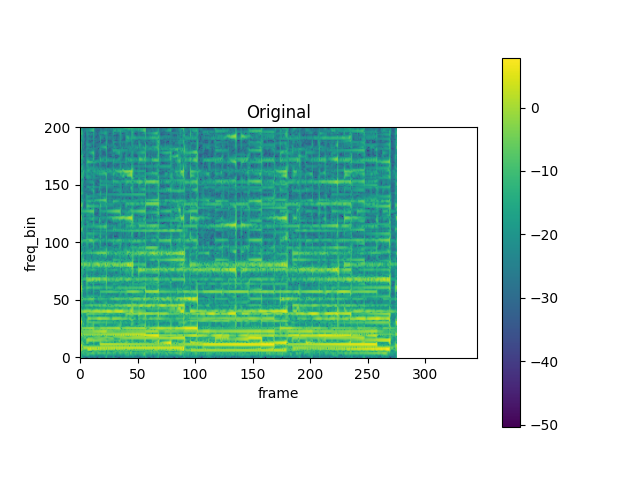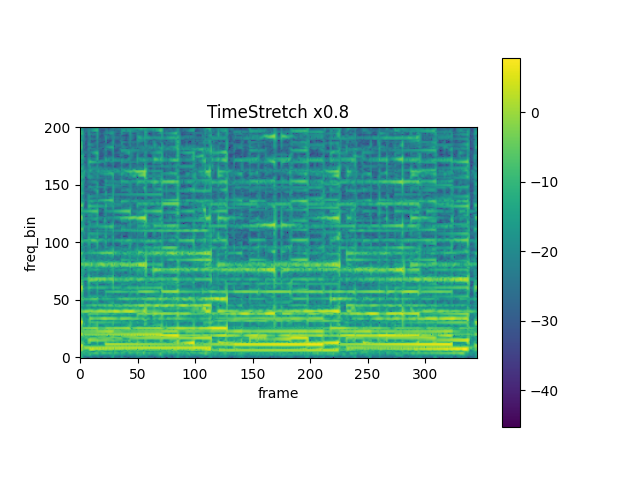mindspore.dataset.audio.TimeStretch
- class mindspore.dataset.audio.TimeStretch(hop_length=None, n_freq=201, fixed_rate=None)[source]
Stretch Short Time Fourier Transform (STFT) in time without modifying pitch for a given rate.
Note
The shape of the audio waveform to be processed needs to be <…, freq, time, complex=2>. The first dimension represents the real part while the second represents the imaginary.
- Parameters
hop_length (int, optional) – Length of hop between STFT windows, i.e. the number of samples between consecutive frames. Default:
None, will use n_freq - 1 .n_freq (int, optional) – Number of filter banks from STFT. Default:
201.fixed_rate (float, optional) – Rate to speed up or slow down by. Default:
None, will keep the original rate.
- Raises
TypeError – If hop_length is not of type int.
ValueError – If hop_length is not a positive number.
TypeError – If n_freq is not of type int.
ValueError – If n_freq is not a positive number.
TypeError – If fixed_rate is not of type float.
ValueError – If fixed_rate is not a positive number.
RuntimeError – If input tensor is not in shape of <…, freq, num_frame, complex=2>.
- Supported Platforms:
CPU
Examples
>>> import numpy as np >>> import mindspore.dataset as ds >>> import mindspore.dataset.audio as audio >>> >>> waveform = np.random.random([44, 10, 2]) >>> numpy_slices_dataset = ds.NumpySlicesDataset(data=waveform, column_names=["audio"]) >>> transforms = [audio.TimeStretch()] >>> numpy_slices_dataset = numpy_slices_dataset.map(operations=transforms, input_columns=["audio"])
- Tutorial Examples:


